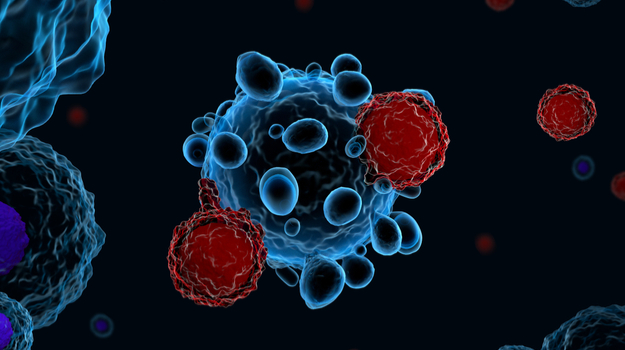Applications
Adoptive Cell Therapy: CAR T-cell Therapy
Immuno-Oncology - Gene and Immunotherapy
Chimeric antigen receptor (CAR) T-cell immunotherapy is a rapidly growing personalized treatment which expands native cellular products ex vivo for re-infusion into patients. This therapeutic approach turns the immune system’s cancer-fighting cells into better defenders by either increasing their fighting ability or their numbers. However, the construct and vector used sometimes necessitates custom assay design for immunogenicity assessment of humoral or cellular-type responses.
Eurofins Viracor Biopharma offers a comprehensive technology portfolio to support clinical development of CAR-T Cell therapies
NGS:
- T cell receptor (TCR) profiling: to identify the diversity and clonality of CAR-T cells by sequencing the TCR variable regions.
- Integration site analysis: to determine the genomic integration sites of CAR transgenes in modified T cells to assess potential genotoxicity.
- Tumor mutation profiling before and after treatment (TSO500, WES, WGS)
- TMB and MSI assessment for trial selection (TSO500)
qPCR and gene expression (Nanostring):
- CAR transgene expression analysis: to measure the presence and level of CAR transgenes in modified T cells.
- Cytokine expression analysis: to evaluate the expression of cytokines, such as interleukin-2 (IL-2), interferon-gamma (IFN-γ), and tumor necrosis factor-alpha (TNF-α), to assess T cell activation and proliferation.
- Nanostring panels: PanCancer IO360 (ready by Q4), PanCancer Immunoprofiling, CART Characterization, Immune Exhaustion, Tumor Signaling
- Single mutation analysis (BRAF V600E – validated)
Flow Cytometry:
- Immunophenotyping: Identifies and quantifies different cell populations in a sample, including CAR-T cells, target cells, and immune cell subsets.
- CAR detection: Determines the presence and frequency of CAR-expressing T cells in patient samples.
- Cytotoxicity assays: Assesses the ability of CAR-T cells to kill target cells by measuring target cell death using fluorescent dyes or markers.
- T cell subset analysis: Characterizes the phenotypic and functional properties of CAR-T cells, such as memory/effector subsets, activation markers, and exhaustion markers.
Immunoassays:
- Cytokine profiling: Quantifies cytokine release, such as IL-2, IFN-γ, and TNF-α, by CAR-T cells or other immune cells in response to stimulation or target cell recognition.
- Cytokine Bead Array (CBA): Enables simultaneous measurement of multiple cytokines secreted by CAR-T cells or other immune cells in a single sample.
Functional Assays:
- Proliferation assays: Measures the ability of CAR-T cells to proliferate in response to antigen stimulation or target cell recognition.
- Cytotoxicity assays: Determines the killing capacity of CAR-T cells against target cells, including tumor cell lines or patient-derived cancer cells.
Analytical methods applicable to CAR T-Cell Therapy development for assessing transduction, persistence & cytokine response syndrome include:
- Multi-color flow cytometry for lymphocyte differentiation, and analysis of intracellular biomarkers (i.e., cytokines)
- CAR T-cell detection and quantification by flow cytometry in PBMCs
- Enzyme-linked Immunospot (ELISPOT) analysis for characterizing specific T- or B-cell responses.
- Functional assays, and intracellular cytokine detection by flow cytometry
- Measurement of gene expressions performed by quantitative polymerase chain reaction (qPCR).
- Immunoassays (ELISA, MSD, Luminex) to measure cytokines and potential ADAs
Cancer Vaccines
Immuno modulation with cancer vaccines is another powerful therapeutic development that shows potential as both a standalone treatment and in combination with other immunotherapies. As with other ITs, the clinical assessments for cancer vaccines include toxicological testing(especially immunogenicity and immune monitoring for safety and efficacy). Our experts can provide assay development and testing solutions for these clinical evaluation needs.

Eurofins Viracor Biopharma offers a comprehensive and diverse technology portfolio, together with in-house expertise, to provide custom assay design, validation, and analysis for any supported platform including:
- PCR, ddPCR, Sanger
- NGS (WGS, WES, RNASeq, somatic testing, and custom panels
- Nanostring (non-PCR gene expression)
- Flow Cytometry